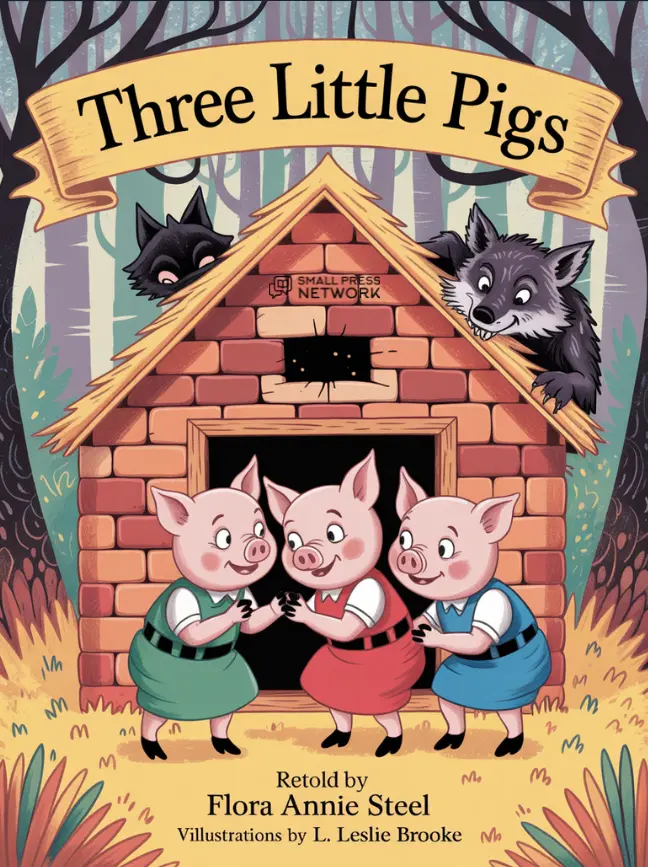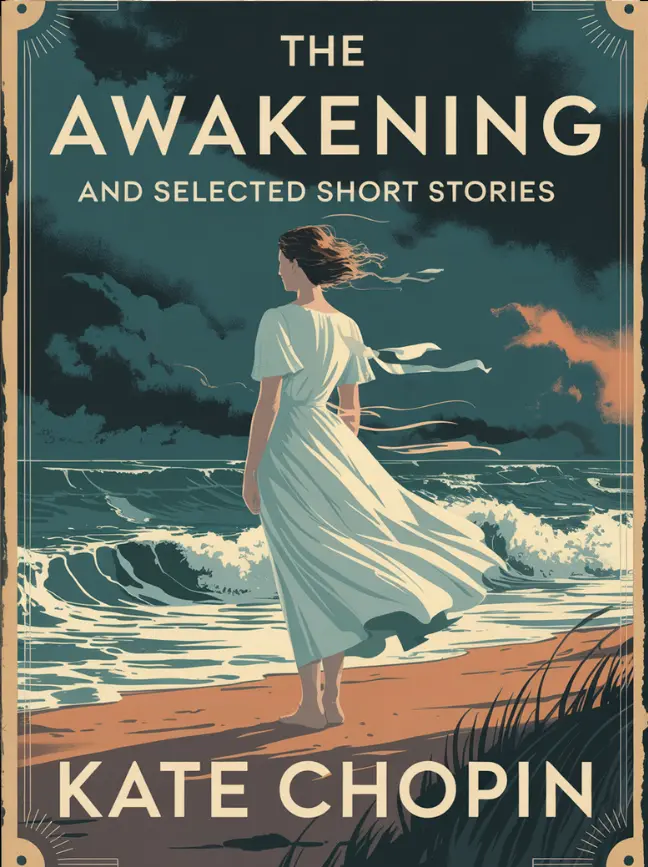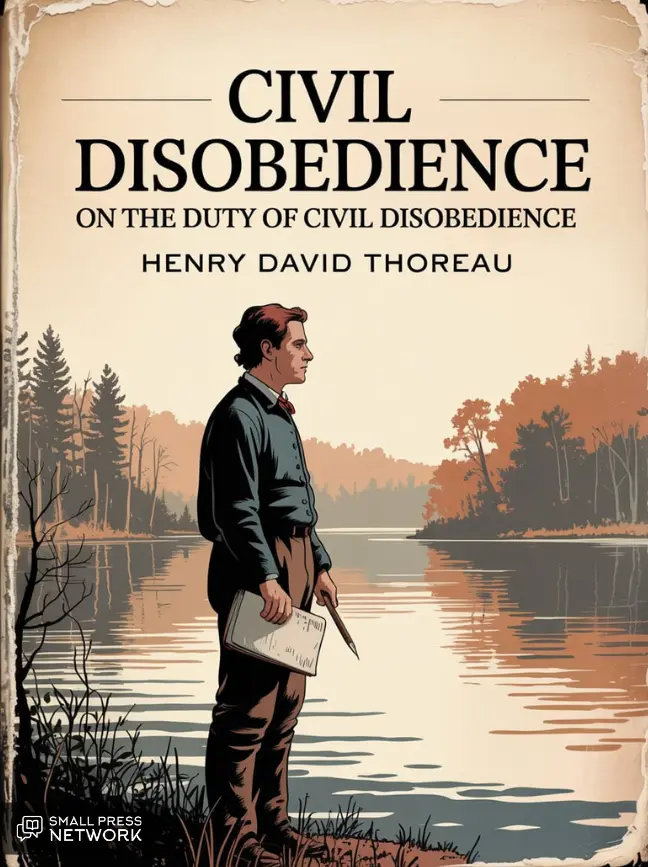966
Chapter X
Having returned to the watchman’s hut, Pétya found Denísov in the passage. He was awaiting Pétya’s return in a state of agitation, anxiety, and self-reproach for having let him go.
“Thank God!” he exclaimed. “Yes, thank God!” he repeated, listening to Pétya’s rapturous account. “But, devil take you, I haven’t slept because of you! Well, thank God. Now lie down. We can still get a nap before morning.”
“But… no,” said Pétya, “I don’t want to sleep yet. Besides I know myself, if I fall asleep it’s finished. And then I am used to not sleeping before a battle.”
He sat awhile in the hut joyfully recalling the details of his expedition and vividly picturing to himself what would happen next day.
Then, noticing that Denísov was asleep, he rose and went out of doors.
It was still quite dark outside. The rain was over, but drops were still falling from the trees.
Near the watchman’s hut the black shapes of the Cossacks’ shanties and of horses tethered together could be seen. Behind the hut the dark shapes of the two wagons with their horses beside them were discernible, and in the hollow the dying campfire gleamed red. Not all the Cossacks and hussars were asleep; here and there, amid the sounds of falling drops and the munching of the horses near by, could be heard low voices which seemed to be whispering.
Pétya came out, peered into the darkness, and went up to the wagons. Someone was snoring under them, and around them stood saddled horses munching their oats. In the dark Pétya recognized his own horse, which he called “Karabákh” though it was of Ukranian breed, and went up to it.
“Well, Karabákh! We’ll do some service tomorrow,” said he, sniffing its nostrils and kissing it.
“Why aren’t you asleep, sir?” said a Cossack who was sitting under a wagon.
“No, ah… Likhachëv—isn’t that your name? Do you know I have only just come back!
We’ve been into the French camp.”
And Pétya gave the Cossack a detailed account not only of his ride but also of his object, and why he considered it better to risk his life than to act “just anyhow.”
“Well, you should get some sleep now,” said the Cossack.
“No, I am used to this,” said Pétya. “I say, aren’t the flints in your pistols worn out? I brought some with me. Don’t you want any? You can have some.”
The Cossack bent forward from under the wagon to get a closer look at Pétya.
“Because I am accustomed to doing everything accurately,” said Pétya. “Some fellows do things just anyhow, without preparation, and then they’re sorry for it afterwards. I don’t like
that.”
“Just so,” said the Cossack.
“Oh yes, another thing! Please, my dear fellow, will you sharpen my saber for me? It’s got bl…” (Pétya feared to tell a lie, and the saber never had been sharpened.) “Can you do it?”
“Of course I can.”
967
Likhachëv got up, rummaged in his pack, and soon Pétya heard the warlike sound of steel on whetstone. He climbed onto the wagon and sat on its edge. The Cossack was sharpening the saber under the wagon.
“I say! Are the lads asleep?” asked Pétya.
“Some are, and some aren’t—like us.”
“Well, and that boy?”
“Vesénny? Oh, he’s thrown himself down there in the passage. Fast asleep after his fright. He was that glad!”
After that Pétya remained silent for a long time, listening to the sounds. He heard footsteps in the darkness and a black figure appeared.
“What are you sharpening?” asked a man coming up to the wagon.
“Why, this gentleman’s saber.”
“That’s right,” said the man, whom Pétya took to be an hussar. “Was the cup left here?”
“There, by the wheel!”
The hussar took the cup.
“It must be daylight soon,” said he, yawning, and went away.
Pétya ought to have known that he was in a forest with Denísov’s guerrilla band, less than a mile from the road, sitting on a wagon captured from the French beside which horses were tethered, that under it Likhachëv was sitting sharpening a saber for him, that the big dark blotch to the right was the watchman’s hut, and the red blotch below to the left was the dying embers of a campfire, that the man who had come for the cup was an hussar who wanted a drink; but he neither knew nor waited to know anything of all this. He was in a fairy kingdom where nothing resembled reality. The big dark blotch might really be the watchman’s hut or it might be a cavern leading to the very depths of the earth. Perhaps the red spot was a fire, or it might be the eye of an enormous monster. Perhaps he was really sitting on a wagon, but it might very well be that he was not sitting on a wagon but on a terribly high tower from which, if he fell, he would have to fall for a whole day or a whole month, or go on falling and never reach the bottom. Perhaps it was just the Cossack, Likhachëv, who was sitting under the wagon, but it might be the kindest, bravest, most wonderful, most splendid man in the world, whom no one knew of. It might really have been that the hussar came for water and went back into the hollow, but perhaps he had simply vanished—disappeared altogether and dissolved into nothingness.
Nothing Pétya could have seen now would have surprised him. He was in a fairy kingdom where everything was possible.
He looked up at the sky. And the sky was a fairy realm like the earth. It was clearing, and over the tops of the trees clouds were swiftly sailing as if unveiling the stars. Sometimes it looked as if the clouds were passing, and a clear black sky appeared. Sometimes it seemed as if the black spaces were clouds. Sometimes the sky seemed to be rising high, high overhead, and then it seemed to sink so low that one could touch it with one’s hand.
Pétya’s eyes began to close and he swayed a little.
The trees were dripping. Quiet talking was heard. The horses neighed and jostled one another. Someone snored.
968
“Ozheg-zheg, Ozheg-zheg…” hissed the saber against the whetstone, and suddenly Pétya heard an harmonious orchestra playing some unknown, sweetly solemn hymn. Pétya was as musical as Natásha and more so than Nicholas, but had never learned music or thought about it, and so the melody that unexpectedly came to his mind seemed to him particularly fresh and attractive. The music became more and more audible. The melody grew and passed from one instrument to another. And what was played was a fugue—though Pétya had not the least conception of what a fugue is. Each instrument—now resembling a violin and now a horn, but better and clearer than violin or horn—played its own part, and before it had finished the melody merged with another instrument that began almost the same air, and then with a third and a fourth; and they all blended into one and again became separate and again blended, now into solemn church music, now into something dazzlingly brilliant and triumphant.
“Oh—why, that was in a dream!” Pétya said to himself, as he lurched forward. “It’s in my ears. But perhaps it’s music of my own. Well, go on, my music! Now!…”
He closed his eyes, and, from all sides as if from a distance, sounds fluttered, grew into harmonies, separated, blended, and again all mingled into the same sweet and solemn hymn.
“Oh, this is delightful! As much as I like and as I like!” said Pétya to himself. He tried to conduct that enormous orchestra.
“Now softly, softly die away!” and the sounds obeyed him. “Now fuller, more joyful. Still more and more joyful!” And from an unknown depth rose increasingly triumphant sounds.
“Now voices join in!” ordered Pétya. And at first from afar he heard men’s voices and then women’s. The voices grew in harmonious triumphant strength, and Pétya listened to their surpassing beauty in awe and joy.
With a solemn triumphal march there mingled a song, the drip from the trees, and the hissing of the saber, “Ozheg-zheg-zheg…” and again the horses jostled one another and neighed, not disturbing the choir but joining in it.
Pétya did not know how long this lasted: he enjoyed himself all the time, wondered at his enjoyment and regretted that there was no one to share it. He was awakened by Likhachëv’s kindly voice.
“It’s ready, your honor; you can split a Frenchman in half with it!”
Pétya woke up.
“It’s getting light, it’s really getting light!” he exclaimed.
The horses that had previously been invisible could now be seen to their very tails, and a watery light showed itself through the bare branches. Pétya shook himself, jumped up, took a ruble from his pocket and gave it to Likhachëv; then he flourished the saber, tested it, and sheathed it. The Cossacks were untying their horses and tightening their saddle girths.
“And here’s the commander,” said Likhachëv.
Denísov came out of the watchman’s hut and, having called Pétya, gave orders to get ready.





